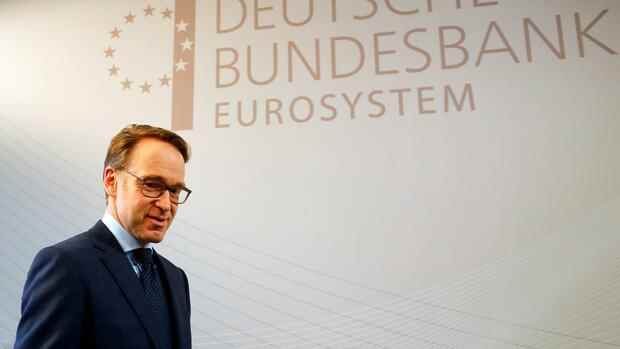The outgoing Bundesbank President urges the money guards to be vigilant.
(Photo: Reuters)
Frankfurt On Thursday, the European Central Bank (ECB) caused a stir with its inflation forecast for the coming year. It almost doubled its estimate from September and raised it from 1.7 to 3.2 percent.
For Germany, too, the Bundesbank has now increased its forecasts vigorously, as the data published on Friday show. According to the European calculation method of the harmonized consumer price index (HICP), she expects an average inflation rate of 3.2 percent for the current year and even 3.6 percent for 2022.
Originally, she had predicted a value of only 1.8 percent for next year. She also raised the forecast for 2023 from 1.7 to 2.2 percent. She also expects this value in 2024.
“As in the euro area as a whole, the upside risks outweigh the inflation rate,” said Bundesbank President Jens Weidmann. “Monetary policy should not ignore these risks and remain vigilant.”
Top jobs of the day
Find the best jobs now and
be notified by email.
According to the Bundesbank, the increase this year is not only due to special effects such as the withdrawal of the temporary VAT cut from last year and the introduction of CO2 certificates. The German government temporarily lowered VAT in the second half of 2020, which means that prices are now higher than the lower prior-year figures. In addition, since January 25 euros per tonne of CO2 have been due in Germany that is produced when diesel, petrol, heating oil and natural gas are burned.
Stronger price pressure
The Bundesbank also sees the sharp rise in energy prices on international markets as a further cause of the increased price pressure. In addition, companies would pass higher costs on to consumers through delivery bottlenecks and expand their profit margins when demand is strong.
Bundesbank chief economist Jens Ulbrich pointed out on Twitter that inflation due to these factors and the recent depreciation of the euro will even rise somewhat on average in 2022, although individual special effects, such as value-added tax, will then expire.
The euro has lost almost eight percent of its value against the US dollar in the past twelve months.
Rising wages, good economy
With the forecast inflation rate of 2.2 percent, the price pressure will remain comparatively high in 2023 and 2024, according to the Bundesbank. The reasons for this are clearly rising wages, the good economic situation, but also the costs caused by the conversion to a climate-neutral economy.
The European HICP inflation measure differs somewhat from the method of calculating the consumer price index (CPI), which the Federal Statistical Office prefers. As a result, the values usually deviate somewhat from one another. In November, the inflation rate in Germany, measured according to the HICP, was six percent compared to the previous year – and measured according to the CPI, it was 5.2 percent. However, there were also months when CPI inflation was higher than the HICP inflation. The differences are related, among other things, to how package tours are weighted in the index.
More: A bit of normalization: the ECB is unexpectedly slow to initiate the turnaround in monetary policy
